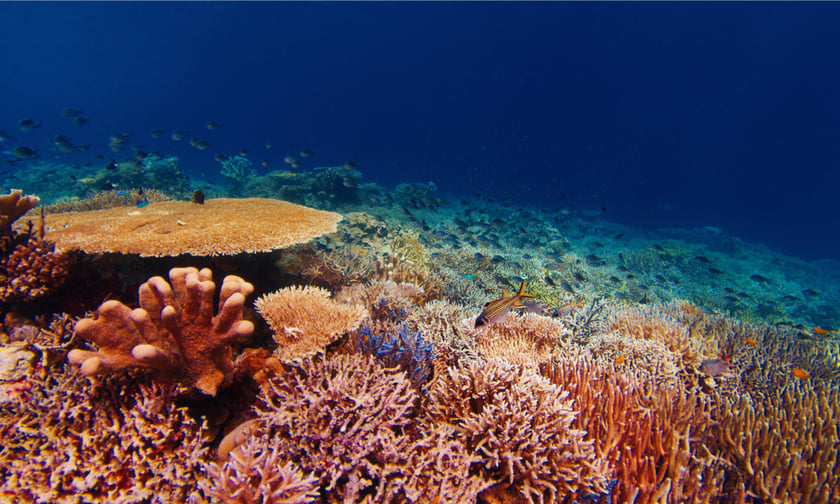

In what could be a significant step for environmental protection, a United Nations development project is exploring insurance mechanisms to safeguard coral reefs. The reefs are near Indonesia’s Gili Islands, located off Lombok and near Bali.
The reefs are increasingly threatened by climate change and natural disasters. For example, the 6.9 magnitude earthquake that struck Lombok in August 2018.
According to a Nikkei Asia report, historically, any efforts to repair and preserve these vital ecosystems have been community-driven and self-funded. The new insurance project, said the report, is set to commence development in January. The project aims to provide immediate financial assistance for reef restoration following natural disasters, without the need for post-event damage assessment.
Backed by the Ocean Risk and Resilience Action Alliance (ORRAA) and funded by the British government's Blue Planet Fund, the initiative, said the report, seeks to establish a sustainable funding model for the Indonesian government and a conservation trust fund.
ORRAA receives support from several countries, including Canada, the UK, the US, as well as financial institutions and nonprofit organizations.
This project is part of a broader trend in the Asia-Pacific region, said the report, where weather-triggered insurance schemes are being considered or piloted by various organizations, including the Asian Development Bank and the Group of Seven nations. These projects often involve significant private insurance companies and offer subsidized premiums or donor-backed projects.
While weather and disaster insurance have existed for decades, access to this coverage remains limited, particularly for vulnerable communities.
In the report, Jan Kellett, head of UNDP's Insurance and Risk Finance Facility, emphasised at the UN climate summit (COP28), the necessity of insurance in these areas, while acknowledging it is not a complete solution.
According to IRFF figures, Indonesia experienced significant economic losses due to disasters between 2007 and 2018, but government spending on response and recovery was comparatively low. Munich Re, a leading German insurance provider, also noted the lack of disaster insurance coverage in developing Asia.
The hope is that donor-supported, parametric-triggered insurance can offer more targeted and affordable coverage. Parametric insurance provides pre-determined payouts when specific climatic or meteorological thresholds are met.
In the report, Krishnan Narasimhan, the global lead for Climate Disaster Risk Financing and Insurance at the UN Capital Development Fund (UNCDF), highlighted the benefits of such schemes, including rapid infusion of funds post-disaster. The UNCDF has been working since 2021 to provide "micro level" insurance in least developed countries and small island states, making insurance accessible to individuals and groups who traditionally lack coverage.
The UNCDF also launched, according to a news release on its website, a parametric insurance scheme in Fiji, offering payouts based on early warnings.
At the recent COP28 climate conference in Dubai, the Nikkei Asia report said the Asian Development Bank introduced a micro insurance initiative to address the impact of heat stress on women in countries like Cambodia and Pakistan.
What are your thoughts on this story? Please share your comments below.
